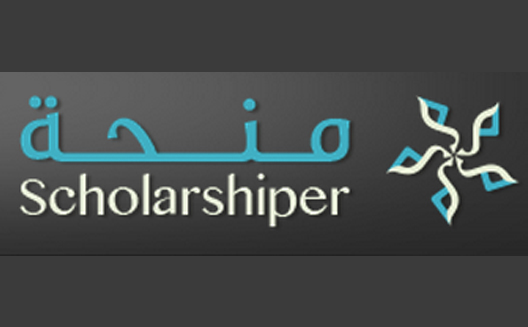Palestinian Platform Helps Arab Students Find International Scholarships


Improving education is the goal of every government in the Arab world today. Yet rather than wait for governments and political situations to change, two Palestinian entrepreneurs from Nablus are taking education into their own hands with Scholarshiper, an online platform that helps connect Arab students to international scholarships.
In
2009, Jafar Hajeer and Ibrahim Dweikat realized that Arab youth,
especially in Palestine, were missing on many opportunities to
study abroad, simply because information about potential
scholarships and programs was not readily available in
Arabic.
To
help solve this problem, they built Scholarshiper (known as Min7a
in Arabic), to aggregate information about relevant scholarships in
both English and Arabic. Each scholarship that their smart
aggregator locates is indexed by category and level
(including Baccalaureat, Masters, Doctorate, training
programs and summer schools) so that students can
easily find programs.
"We care about delivering the complete information to the student including the amount of fund offered, where to apply, and what the required papers are," says Hojeir.
As it trawls the web, the platform uses specific keywords to determine the topics, nationalities allowed, scholarship amounts, and availability to Arab students. The Min7a team then monitors and verifies posts before they are published.To keep students up to date, the platform offers RSS services and publishes all scholarships on its Facebook and Twitter channels.
Success Stories
Although Hajeer and Dweikat first built the site in 2010, they relaunched in 2012 with a new focus on content describing each scholarship and partnerships with international universities.
"We care about delivering the complete information to the student including the amount of fund offered, where to apply, and what the required papers are," says Hojeir.
As it trawls the web, the platform uses specific keywords to determine the topics, nationalities allowed, scholarship amounts, and availability to Arab students. The Min7a team then monitors and verifies posts before they are published.To keep students up to date, the platform offers RSS services and publishes all scholarships on its Facebook and Twitter channels.
Success Stories
Although Hajeer and Dweikat first built the site in 2010, they relaunched in 2012 with a new focus on content describing each scholarship and partnerships with international universities.
And
with a new blogs series called 7ikayati ("my story"), Scholarshiper is
finally showing off the fruits of its work, showcasing
the success stories of those who have won scholarships on the site.
A few recent stories include female entrepreneurs from Egypt and Palestine
who won Google Anita Borg Memorial Scholarships to study computer
science, and others who won scholarships in Italy and Sweden in IT and engineering.
7ikayati also offers advice from those who have been accepted, in hopes of helping applicants find success. Offering advice is essential, says Hajeer, as in his experience many Arab students don't read carefully and are not patient enough; many want to get the scholarship quickly without any efforts. A lack of Arab students in scientific research centers, however, signals a huge opportunity.
Advice for
Applicants
Hajeer offers up some of
Scholarshiper's advice to those seeking a scholarship:
- Don't give up if your first trial fails; you might need to apply to over 20 programs to be accepted.
- Keep your CV and recommendation letters ready because some scholarships pop up very quickly with short deadlines.
- Strengthen your English language skills for foreign applications and interviews.
- Subscribe to programs that help prep students present for scholarships.
- Start looking now, especially if you are a graduate student and you are planning to continue your studies abroad.
The site has already helped
around 50 students find scholarships, and is now focusing on
advertisement, partnerships with international universities and
features posts to monetize. This may be a drop in the bucket, but
if the platform can scale, it could have a dramatic effect on
creativity and productivity in the Arab region, by helping educate
the region's next generation of IT leaders. Now all it needs is a
business model.


